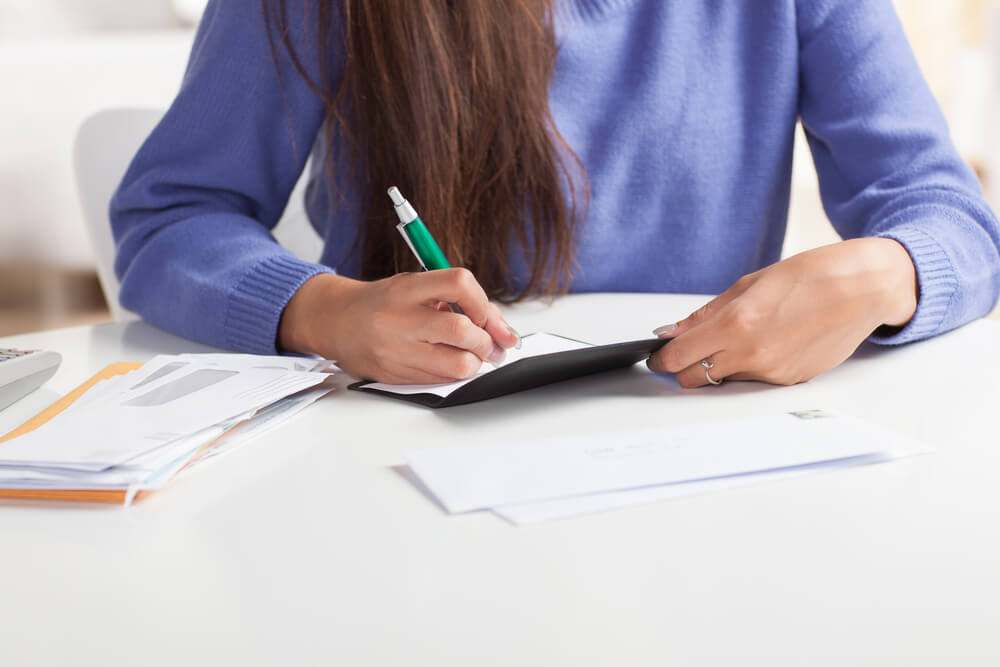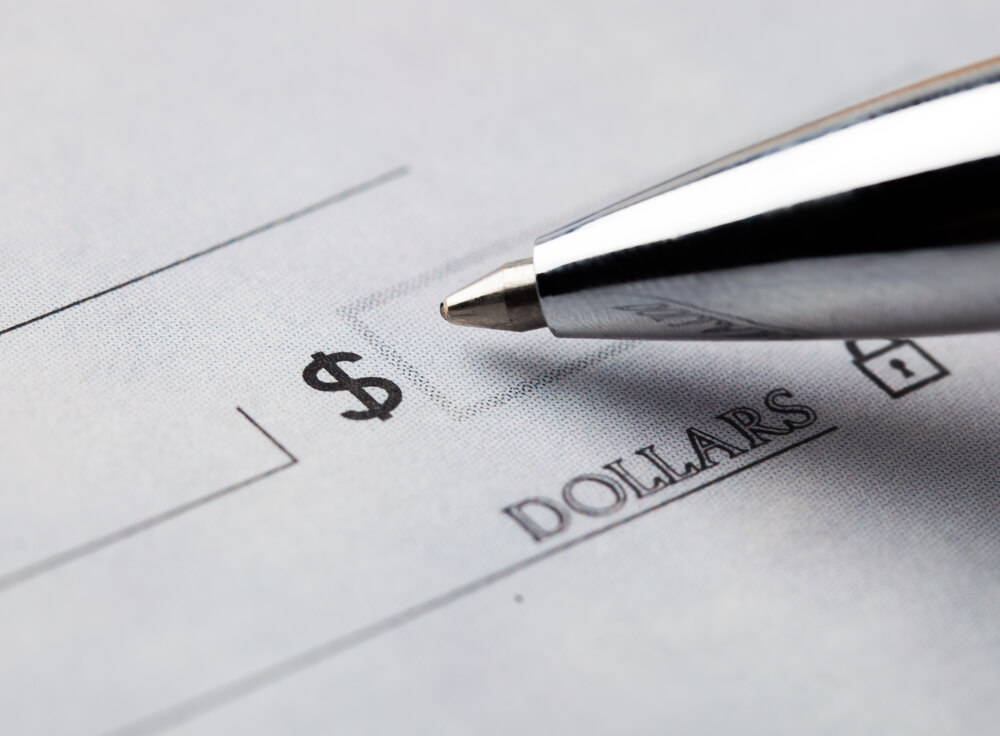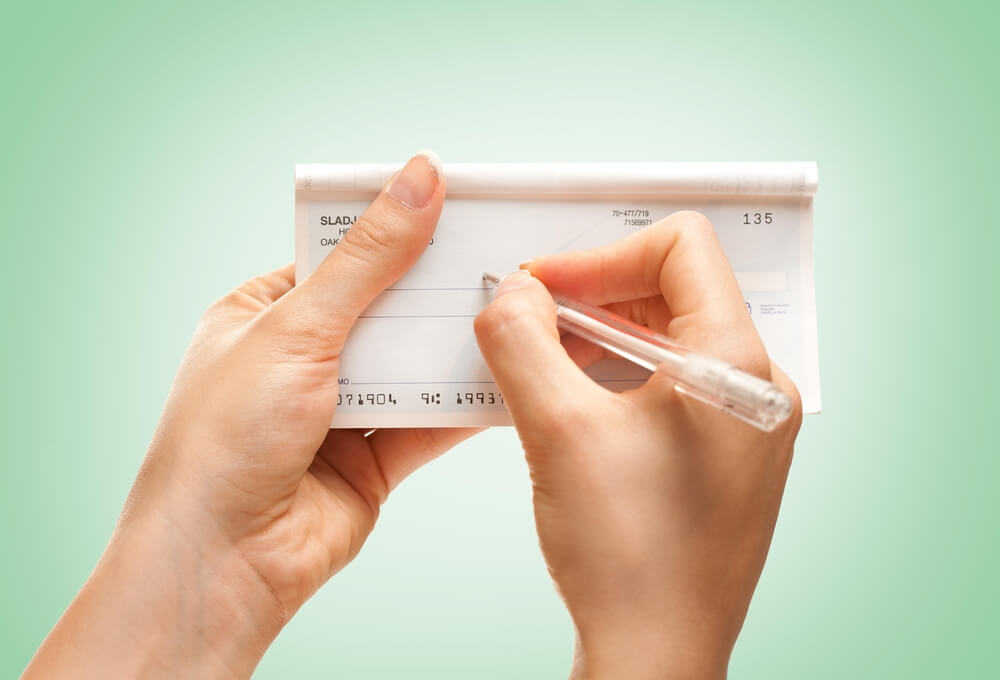Before online transfers, people used to do all sorts of things to get money from one account to another. Nowadays, it’s easy to do so. You no longer have to go to a bank to transfer funds from accounts A to B. You can do everything from the palm of your hand via an app. Alternatively, you can use a computer and do the same if the app supports it.
However, some scenarios still exist where writing a check to yourself might save you time and energy. If you’re wondering how to do it or whether it’s possible, you’re in the right place to find out. So let’s elaborate on that.
Why Would Anyone Write a Check To Themselves?

Before explaining why you would write a check to yourself, let’s first mention how checks work. There are several types of checks, but the idea is more or less the same. In most cases, the bank needs to approve that the amount stated on the check is available on the account holder’s balance. Cashiers, private, or certified checks work on this principle. The difference is that the latter scenario implies that the funds are frozen but still a part of the account holder’s balance.
Checks are the alternative to transferring money digitally from one account to another. Once the payee draws the money from the bank, ATM, cashier, or elsewhere, there is no way to reverse the process. However, there can be fines if there’s no balance on the mentioned account on the due date.
Back on the matter of writing a check to yourself, people do this because of transaction policy. Transferring money from one account to another doesn’t always clear on the same day. You might get the money after three days, depending on the bank’s policy and other factors. For example, if you transfer money from one account to another on Friday afternoon, the transfer won’t be complete until Monday. This is, of course, due to the bank’s policy of clearing but also international labor law. In other words, the transfer is skipping the weekend.
On the other hand, if you write a check to yourself, you may get the money on the same or the next day. Suppose you have money in one account and want to pay for a service or a product, but for some reason, you can’t. Either the type of payment card (debit, credit, etc.) isn’t supported for that transaction or some other reason. Transferring money from that account to another would take time, and you want the product/service on the same day. In that case, you can cash the check where both the payee and the payer is you. Once you do that, deposit the check and add the amount to the desired account and voila – the transaction is complete!
Also, it’s a safe way to add money to an account right from the counter. If you don’t have an account in the bank available to you at that moment, but you want to send money, you can do so with a check. Simply go to a bank, ask for a check, fill it out, and deposit the money. You’re basically using the bank as the payee, although you don’t have an account with them.
How to Write a Check to Yourself
So now that you know you can do it, you’re probably wondering how to write a personal check to yourself, right? The process is the same as writing a check to any other account holder. You write the payee’s name under the “pay to the order of” section, state the amount and sign it.
You can get the check by visiting your bank and talking to a clerk or employee. Of course, you can’t acquire an unlimited number of checks. Every bank has a different policy, so the number of checks available also varies. It depends on your income and other factors – how long you have an account in that bank, employment status, etc.
Why Write a Check to Yourself?
Now that you know how to write a check to yourself, you’re likely wondering when it makes sense to do so. Below are some of the scenarios where writing a check to yourself makes perfect sense:
- Making a transfer: If you want to close one bank account and open another, writing a check to yourself allows you to move funds. You can also write yourself a check to deposit funds from one account to another at the same bank. If you have accounts at different banks and want to transfer money, writing a check to yourself will do the trick.
- Getting cash from your bank account: If you want to withdraw money from the bank, writing yourself a check is one option you can look into. Once you have written a check to yourself, you can take it to the bank teller and cash it. Ensure that you endorse the check by signing it on the back.
The Dos and Don’ts of Writing a Check
When writing a check to yourself or someone else, keep the following in mind:
- Use a pen: Using a fine-tip marker or pen to write your check will make altering it difficult.
- Print the value: When filling out the amount, ensure you print the value properly to prevent thieves from modifying the amount. Write the amount in the location furthest to the left. You can write a line after the last digit so nothing else can be added. It is also ideal to write the numbers large enough so it takes up the whole area.
- Ensure your signature is consistent: A consistent signature can help your bank easily identify fraud. If the signature is not a match, proving you are not responsible for the charge is much easier.
- Carbon copy your checks: Some checkbooks come with a sheet of carbon paper between the facsimile and the actual check, allowing you to easily trace how you spent your money and what you printed on each check.
- Don’t write blank checks: Ensure the correct name and amount are written before signing the check. Check with the concerned parties if you’re unsure of the amount and who to list as a payee.
- Don’t address the check to cash: Never print the payee out to CASH. Writing cash can be as risky as carrying a signed blank check or a huge load of cash in your wallet.
- Don’t forget to verify your check: Bank tellers are not permitted to correct any error on your written check. To ensure a hassle-free transaction, check and ensure everything is correct before giving the check to a business or individual.
- Don’t lose your checks: If your checks are lost or stolen, inform your bank immediately so they can cancel the remaining checks and freeze your account immediately.
Is It Illegal To Write a Check to Your Name?

So, can you write a check to yourself without consequences? Writing a check to yourself isn’t illegal. You’re simply starting a transaction from one bank to another. But in certain scenarios, there can be consequences.
Because no clearing is required as the bank guarantees the money, you must pay attention to the date on the check. For example, if you write tomorrow’s date on the check and spend the money on that account by tomorrow, the bank will charge you the amount plus the fees expense. This is why it’s important to have the money in the account before the due date, which leads us to another question:
Can I Write a Check to Myself With No Money in My Account?
The process goes like this:
- The bank issues you the check.
- You fill out the check and pay for the services/products.
- The retailer gets the money from the bank.
- The amount stated on the check is refunded from your account on the specified date.
So basically, the bank lends the money with you being the endorser. The bank is paying the amount to whoever the payee is, but they have you back it all from your account. However, if you can’t back it up because you don’t have the money, although you have an account, they will charge you.
Knowingly writing a check to yourself with insufficient funds is called check kiting. And it is illegal. It’s a fraudulent action that allows people to misuse the system and get access to otherwise non-existing funds. So instead of using a check as a negotiable tool, they are being used to get unauthorized credit. So when they pay with a check, the only authorization the system needs at that moment is the existence of the account written on the check.
In other words, the “writing myself a check” idea is only illegal if you knowingly write it without having any available balance on your account.
“For instance, it would be very illegal for you to write a check and then try to prepare this check if you knew there was no money in your bank account,”- says Diana Adjadj, an editor from ClassyEssay essay writing service.
If you need info regarding online check issuing and online payment, be sure to visit checkissuing.com. It’s a great way to write a check online or get a check mailed to your very doorstep.






